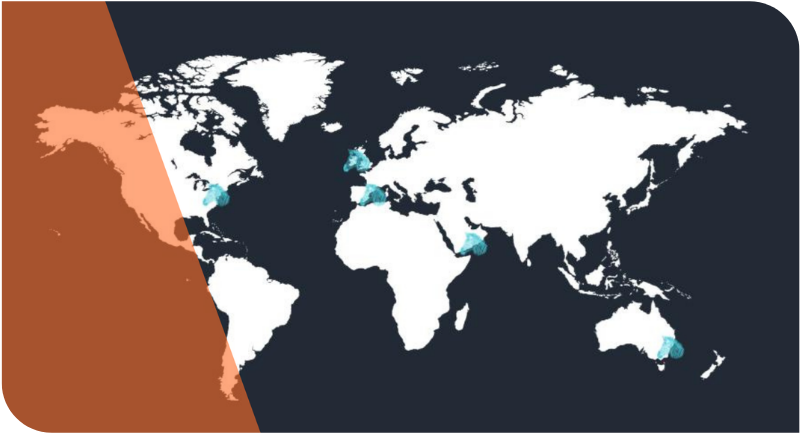Going International - Why Global Media Coverage Matters
By Zoe Baptie, Associate Director - Head of Tech Practice
Whether your business is completely new to doing public relations or it’s been getting coverage in just its core market, there can be a lot to consider when deciding to expand into other territories.
Obtaining third-party validation through global press coverage can demonstrate a company's scale, reiterate messaging that connects sites, and raise awareness across multiple countries. What’s more, coverage published in a language that is spoken or recognised in multiple markets will be searchable in those countries, which can be great for SEO. For example, if an article is published in English in an Australian publication, it will still appear in US search rankings and add to the credibility of a global company.
However, it’s essential to consider whether the messaging needs to be adjusted to align with regional nuances. Think regionalisation and localisation. So when adjusting content to fit a specific market, it’s not just a case of changing the language to fit that region, but localising it to make it impactful. Add context, such as why it matters for that specific country, and make it relevant to the audience you are trying to engage with. Is there a local issue that your product solves?
As such, there’s no point trying to pitch content or news that isn’t relevant to the region it's being pitched in. Journalists will only publish things that are helpful or interesting to their readers. If your business doesn’t have an in-market spokesperson or an office based in that market, it has already lost its relevance.
This also applies to providing a native speaker to the press for media briefings. By having someone in the region who can speak the language, you are offering media access to someone who not only has company and industry experience, but also knowledge and understanding of that market, who can connect the story. Plus, there is a lot less risk of things being lost in translation if the spokesperson is fluent in the same language as the journalist they are speaking with.
It’s also worth bearing in mind that exclusivity has no borders when it comes to news. Remember how something published in the same language will appear in the search rankings across oceans? Therefore, pick your market. Where is the news going to be most impactful? If trying to attract a US and UK audience, consider what publications offer a ‘global’ reach. Alternatively, can the story be repurposed by regionalising and localising it for use in another market? That being said, if an exclusive goes live in central Europe and is published in the local language, then there is a slight exception to do an exclusive in Europe and the US at the same time - so long as it’s not in the same language, the publications don’t compete on the same level.
There can be a lot to juggle and take on board when planning a global PR strategy. Working with partners that can act as a central hub and who collaborate with in-market PR professionals who all share the same level of industry-specific expertise can ensure consistency. What’s more, they can ensure that messaging is aligned with your company's overall goals. It means you only need to brief one person in one region once, and they do the heavy lifting across your target markets by setting the strategic direction and sharing best practices across regions. This results in small input for you but big gains when it comes to global coverage.

